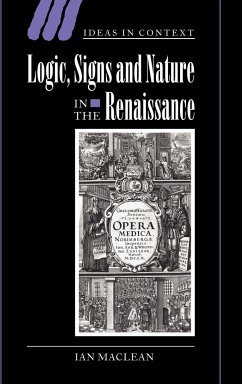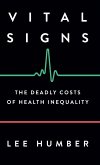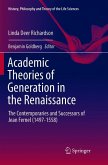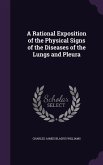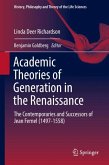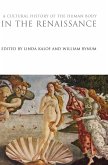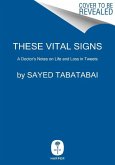How or what were doctors in the Renaissance trained to think, and how did they interpret the evidence at their disposal for making diagnoses and prognoses? This 2001 book addresses these questions in the broad context of the world of learning: its institutions, its means of conveying and disseminating information, and the relationship between university faculties. The uptake by doctors from the university arts course - the foundation for medical studies - is examined in detail, as are the theoretical and empirical bases for medical knowledge, including its concepts of nature, health, disease and normality. Logic, Signs and Nature in the Renaissance ends with a detailed investigation of semiotic, which was one of the five parts of the discipline of medicine, in the context of the various versions of semiology available to scholars. From this survey, Maclean makes an interesting assessment of the relationship of Renaissance medicine to the new science of the seventeenth century.
Bitte wählen Sie Ihr Anliegen aus.
Rechnungen
Retourenschein anfordern
Bestellstatus
Storno

